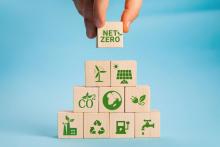Climate Resilience and PPPs
Many risks associated with climate change will be felt hardest by lower income countries, as their ability to prevent and respond to the impacts of climate change is limited. Against this background there is an urgent need for the development and finance of climate-smart infrastructure solutions. PPPs potentially provide a useful framework under which the public and private sectors can pool and coordinate their financial and technological resources more efficiently.
